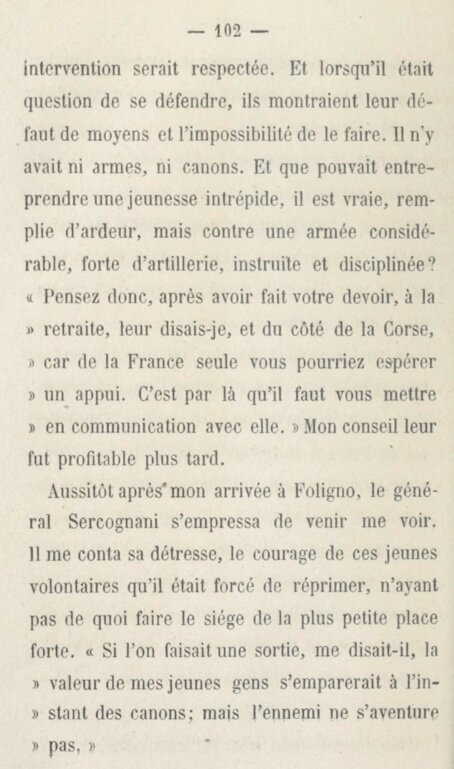Hortense est à nouveau traitée comme la révolutionnaire qu'elle n'a jamais demandé à devenir.
This is a series where we translate the story of how Hortense (Napoleon’s stepdaughter and sister in law) came to lose her second beloved son, Napoleon Louis. In this section, we see again how Hortense’s life circumstances constantly brought her into dangerous revolutionary situations. Surprisingly, she always knew how to navigate them.
Hortense writes:
[the French newspapers said non]-intervention would be respected. And when it came to defending themselves, they showed their lack of means and the impossibility of doing so.
There were no weapons or cannons. And what could an intrepid youth do, it is true, full of ardor, but against a considerable army, strong with artillery, educated and disciplined?
"Think then, after having done your duty, of retreat," I said to them, and about those on the side of Corsica, "France alone is where you could hope for support. This is why you have to put yourself in communication with her.”
My advice was of benefit to them later. Immediately after my arrival at Foligno, General Sercognani hastened to come to see me.
He told me of his distress, the courage of these young volunteers whom he was forced to hold back, not having enough to make a go of the smallest stronghold.
"If we went out," he said to me, "the value of my young men would be stopped by the cannon; but the enemy does not venture forward.”
He gave me his campaign plan as if I were a general, and I admit that I understood nothing about it. Where his left and right were supported didn't interest me much.
I saw only defeat, and I was occupied only with the means of withdrawing them all from the frightful position which I foresaw, since no precaution had been taken.
So I said to him: "How do you not think about putting yourself into communication with the Mediterranean Sea? For the retreat and to defend with honor, step by step your insurgent countries, one must come to rely on this side. The French, at least, if they don't support you, can send you ships to save you. If they do support you, they must know where to find you. If you had Civita-Vecchia, you could easily communicate with Corsica. Why did you not write to the general who commands on this island? Here, it seems to me, where your movements tend to extend.”
He approved of my campaign plan.
…
Il s'agit d'une série où nous traduisons l'histoire de la façon dont Hortense a perdu son deuxième fils bien-aimé, Napoléon Louis.
Dans cette section, nous voyons à nouveau comment les circonstances de la vie d'Hortense l'ont constamment amenée dans des situations révolutionnaires dangereuses. Étonnamment, elle a toujours su s'y retrouver.



